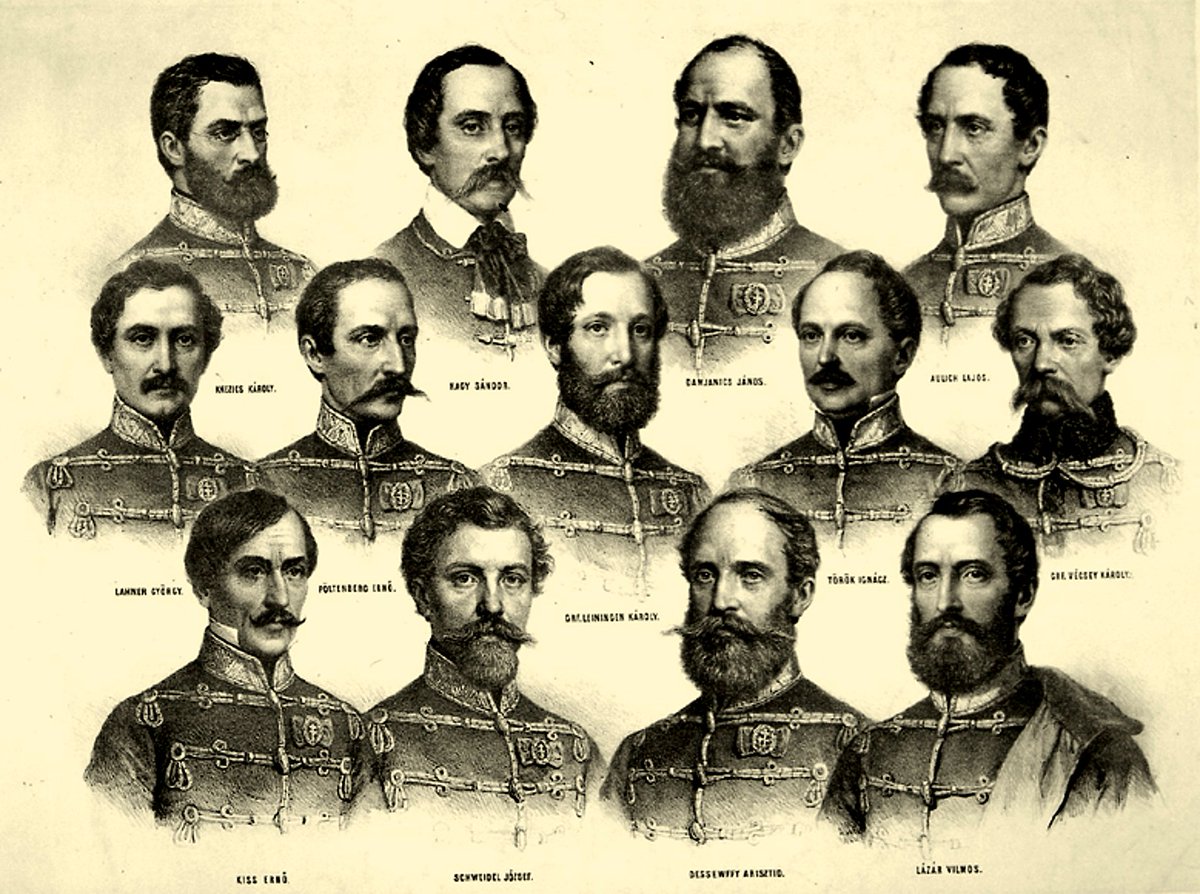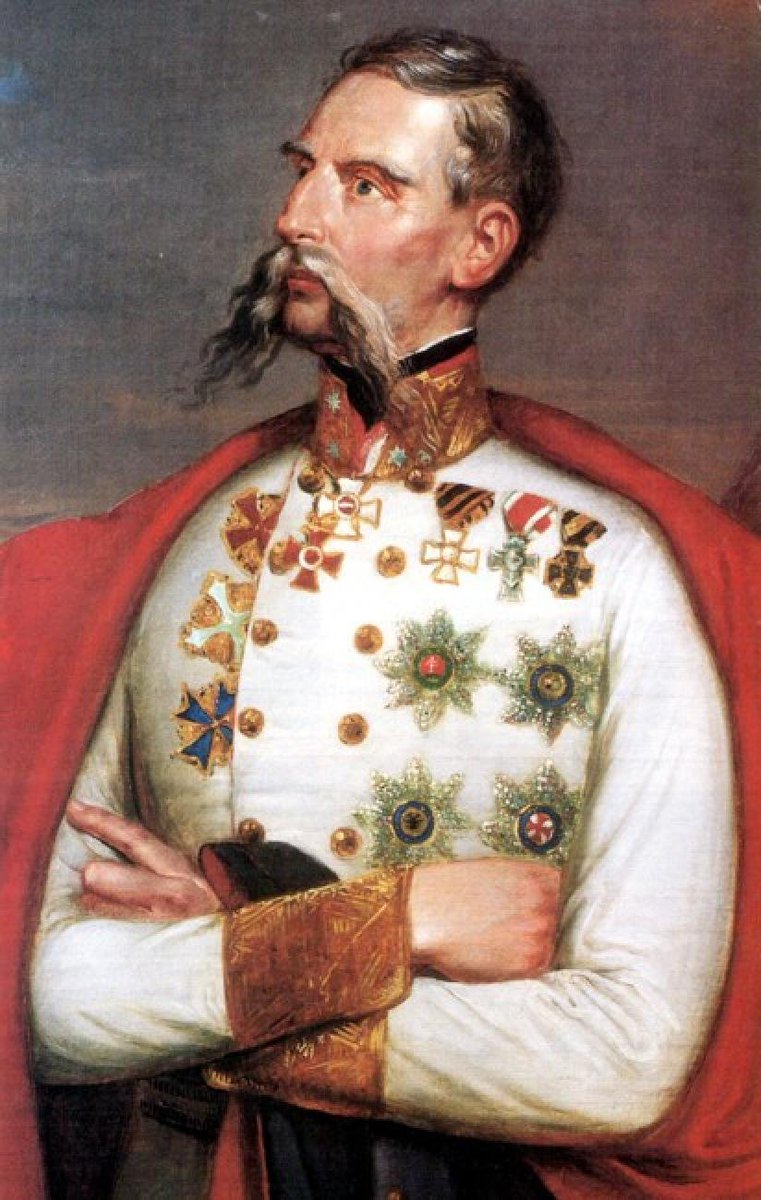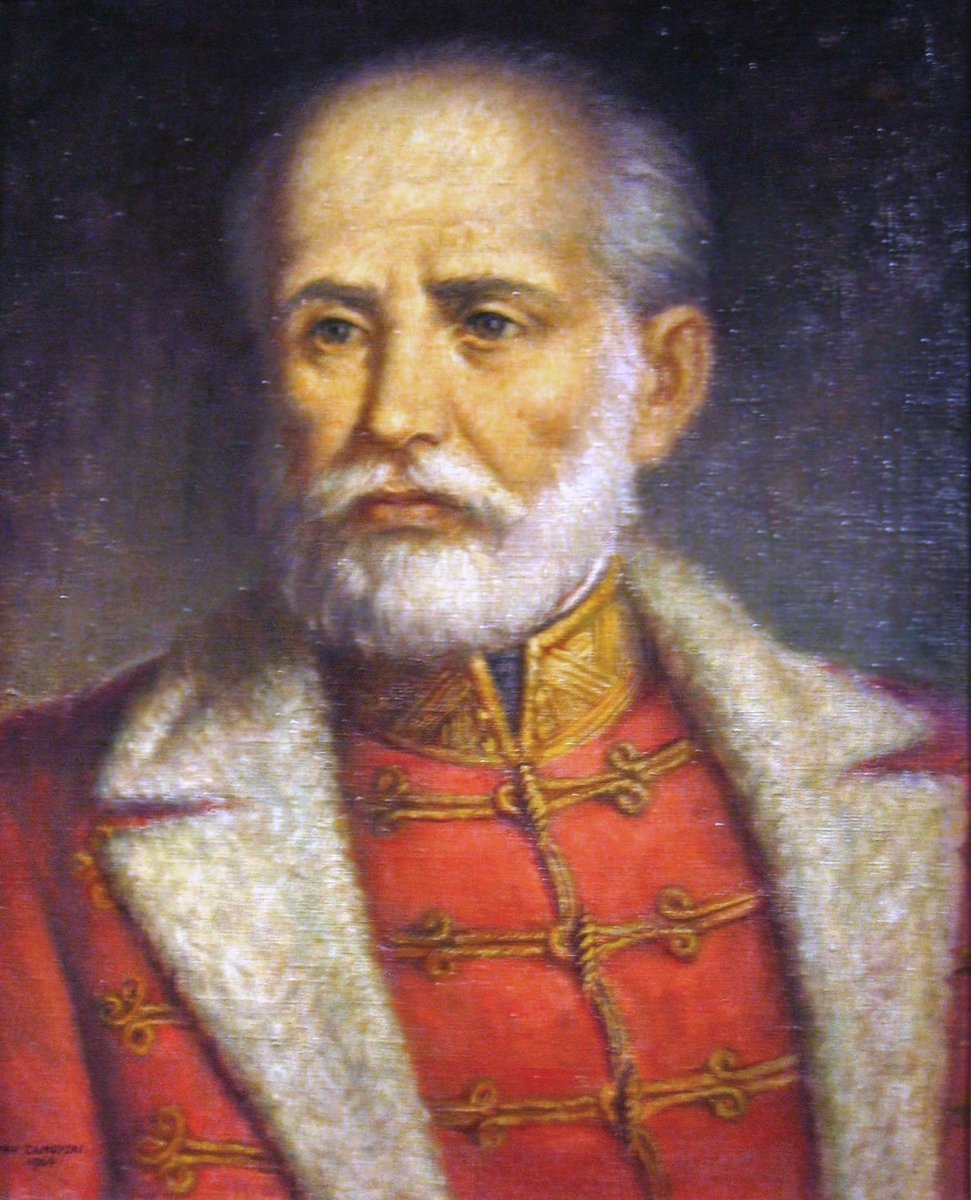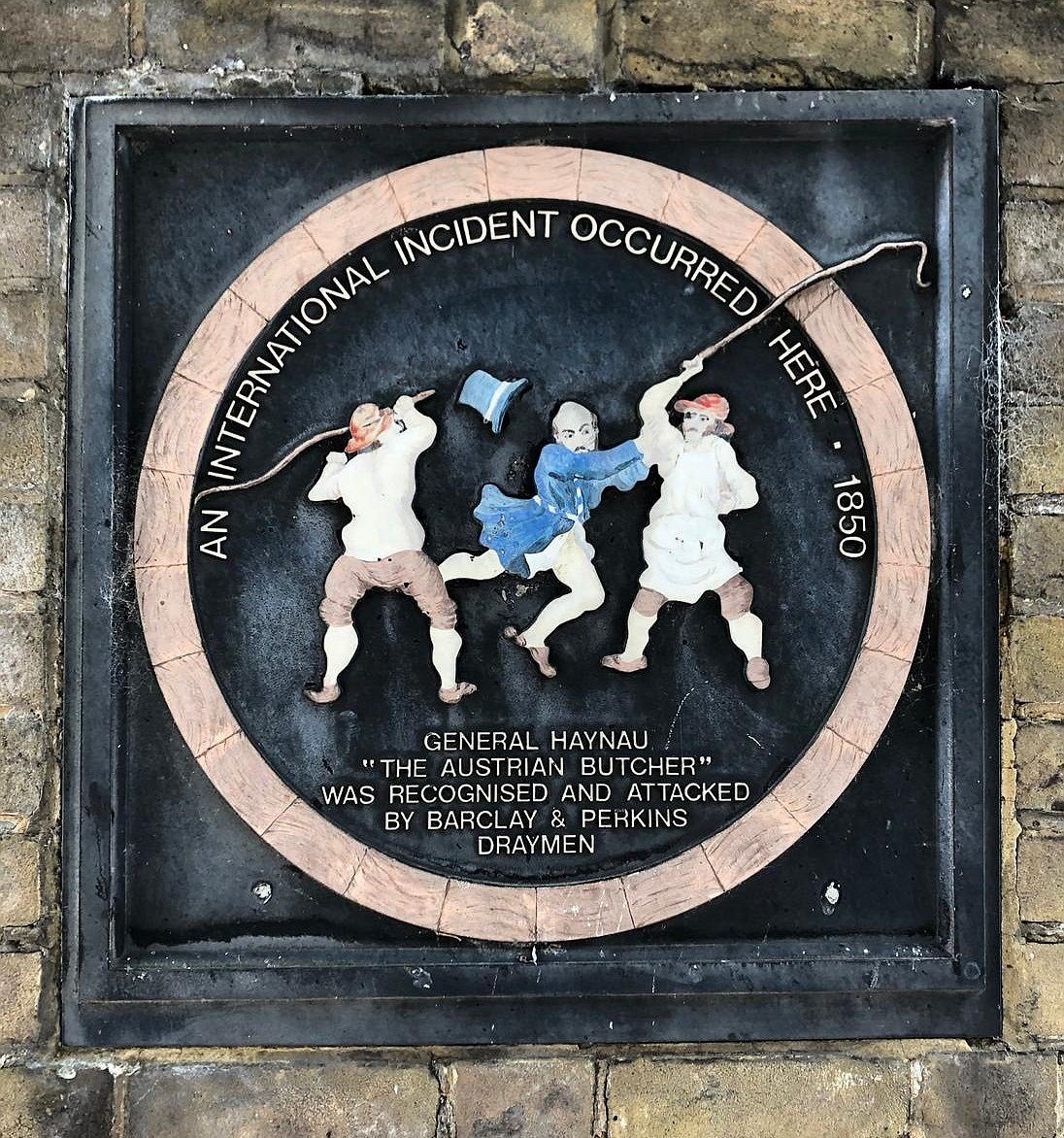Mini Hungarian language lesson: thirteen
Out of our many heroic defeats throughout history, few shaped our national consciousness so comprehensively as the 1848-49 revolution. Which is odd when you think about how bloody long ago it was.
Out of our many heroic defeats throughout history, few shaped our national consciousness so comprehensively as the 1848-49 revolution. Which is odd when you think about how bloody long ago it was.
And that& #39;s mostly down to a single event, of which the 171st anniversary is today: the execution of the Arad Thirteen.
They were all generals of the rebel Hungarian army and all of them had defected from the Austrian army to then fight against their old paymasters.
They were all generals of the rebel Hungarian army and all of them had defected from the Austrian army to then fight against their old paymasters.
Their abandonment of their oath and the bloodthirsty disposition of General Haynau, who oversaw the court-martials, meant all 13 of them sentenced to hanging: a gross betrayal of not just Austria& #39;s own word but also the military tradition that officers were never hanged but shot.
Although 4 of these sentences were eventually commuted to execution by firing squad, they made sure everything happened in the most brutal way possible, possibly calculating that this will deter any further resistance.
To call it a miscalculation would be an understatement.
To call it a miscalculation would be an understatement.
The Martyrs of Arad became legendary heroes pretty much on the day of their execution, which sparked an 18 year period of passive resistance that eventually forced Emperor Franz Josef into the Ausgleich ("Kiegyezés"), and the formation of the dual monarchy of Austria-Hungary.
(Quick aside: the policy of abstentionism in the Imperial Council, exercised by Hungarian parties during the latter part of Austrian military rule, was used forty years later as a kind of blueprint by a nascent Sinn Féin.)
How legendary were these martyrs then?
Well, the word "martyr" already says a lot.
But let me put it this way: as a child I learnt all their names (and some of them are bloody hard, like "Leiningen-Westerburg Károly"), all their nationalities and the manner of their execution.
Well, the word "martyr" already says a lot.
But let me put it this way: as a child I learnt all their names (and some of them are bloody hard, like "Leiningen-Westerburg Károly"), all their nationalities and the manner of their execution.
And literally nothing else. I didn& #39;t know what they did during the revolution, which battles they fought or anything but that was alright: they weren& #39;t celebrated as people but as emblems of a multinational effort to fight against oppression.
Because while the revolution itself was unarguably a Hungarian political venture, the military campaign was often led by German, Austrian, Czech, Serb or Croat officers, not to mention the revered Polish general and all-round revolutionary, Józef Bem.
And what happened to General Haynau? Well, his reign of terror thankfully didn& #39;t last long, 9 months to be precise.
He was recalled in 1850 when his unhinged personality probably became too much of an embarrassment for the Empire.
He was recalled in 1850 when his unhinged personality probably became too much of an embarrassment for the Empire.
There is also an account of his visit to London, which...well, let this commemorative plaque speak for itself:
And while our relationship with Austria is cordial verging the nostalgic these days, with many referring to them as "sógorok" ("brothers-in-law"), the hatred of Haynau is still very much alive.
It is for this reason that Magyars still to this day are reluctant to touch beer mugs when toasting, because according to legend the Austrian generals did it to celebrate the massacre.
(There is of course no evidence of this, in fact it may have been invented by wine producers.)
(There is of course no evidence of this, in fact it may have been invented by wine producers.)
And even if we do clink beers these days (due to an additional myth that the "ban" would expire in 150 years), we do it with the words "Vesszen Haynau!" ("Down with Haynau!")

 Read on Twitter
Read on Twitter






